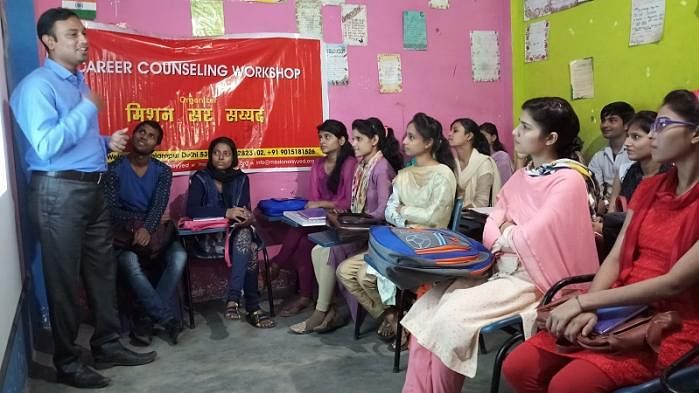New Delhi: As many as 20 lakh more minority students received education scholarships under the Narendra Modi government’s first term than during the tenure of the second Congress-led UPA administration.
While 3.14 crore minority students secured government scholarships between 2014 and 2019, the number stood at 2.94 crore for the second Manmohan Singh dispensation, which was in office from 2009-2014. This translates to a rise of 7 per cent in beneficiaries under the Modi government.
The Ministry of Minority Affairs recognises six minority communities — Muslims, Christians, Sikhs, Buddhists, Parsis and Jains. Of these, the Jains got minority status in 2014.
Among Muslims, who constitute the largest minority group in the country, 2.37 crore students got a government scholarship under the first Modi government. Under UPA-II, the figure stood at 2.33 crore.
According to annual ministry data accessed and compared by ThePrint, the central government spent Rs 8,715.4 crore on education scholarships between 2014 and 2019, against Rs 5,360.4 crore from 2009-2014.
‘More factors at play’
The Ministry of Minority Affairs hands out scholarships at three levels — pre-matric, post-matric, and for undergraduate and postgraduate students.
Students from Classes 1 to 10 who have secured at least 50 per cent in the previous final examination and whose parents’ annual income does not exceed Rs 1 lakh are eligible for the pre-matric scheme.
The post-matric scheme covers students from Class 11 and 12, as well as those pursuing equivalent vocational courses affiliated with the National Council for Vocational Training (NCVT). Their family income needs to be below Rs 2 lakh/year for students to be eligible.
The third is the merit-cum-means scheme, which covers students pursuing technical and professional courses at the undergraduate and postgraduate levels, whose parents’ annual income does not exceed Rs 2.50 lakh.
Activists working for the empowerment of minority communities say while the implementation of scholarships has improved under the Modi government, greater awareness among beneficiaries also has a role to play.
“During the UPA-II, the amount given to each student under the post-matric scheme was around Rs 23,500. Under the Modi government, it increased to around Rs 25,000-26,000,” said Aftab Fazil, coordinator at the Delhi-based Sir Syyed Educational and Social Welfare Society, which helps students access scholarship schemes.
“Recently, it has also become easier to get income certificate of parents made. There are also more organisations that help spread awareness about these schemes — all of this helps,” Fazil added.
Nurul Islam, who runs the Al Ameen Mission in West Bengal to improve education levels among Muslim children, said the increasing interest and awareness in the community should be factored in while drawing comparisons between the performance of the two governments.
“The awareness for pre-matric and post-matric schemes has increased. But more importantly, the interest level of minority-community students in wanting to pursue education has also increased,” he added.
Islam, however, said he wasn’t sure if the higher numbers suggested an overall uplift in the condition of the community. “When students hear or read news of hate crimes against Muslims, it tends to affect their psyche and may inhibit their free movement,” he added.
‘100% online’
Other factors may be at play as well behind the growth in numbers, including the increase in the ministry’s budget over the past decade.
The ministry’s budget in 2013-14 was Rs 3,511 crore, which went up to Rs 3,711 crore in 2014-15. For 2019-20, the budget is the same as in 2018-19, Rs 4,700 crore.
Minister Mukhtar Abbas Naqvi said taking the process online had helped plug leaks.
“We made the entire scholarship application process 100% online, which made the process easier and ensured that the leakages end,” he told ThePrint. “The scholarship money goes directly to the bank account of the needy student, and the increase in the ministry’s budget has helped too,” he said.
Naqvi said the ministry’s aim was to reach 5 crore minority students in this term.
Also Read: Muslim school kids called names and told to ‘go to Pakistan’, mothers blame TV hate
